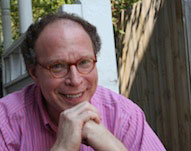If you are diagnosed with cancer when you have young children, you’re faced with what to share with them and how to share it.
Children can usually sense when something is wrong. And they will likely overhear the word “cancer” when you’re talking with someone else. If you tell them the truth, they can focus on the reality rather than the even scarier things in their imagination.
Here are a few suggestions:
- Children need to be assured of their own security. How will family life change as a result of what’s happening? Who will pick them up from school? Who will make dinner?
- It’s OK to say you don’t know the answer to a question.
- You don’t have to share everything at once. Several shorter conversations are often better than one long conversation.
- Be honest.
- Encourage your kids to ask questions and set aside time for that purpose.
- Reassure them that cancer is not passed from one person to another. Nothing they did caused your cancer nor can they get cancer from you.
- Let them know about your treatment and any expected side effects. If you’re going to lose your hair from chemotherapy, let them know in advance so they won’t be surprised.
- Inform your children’s school about your cancer so the teachers can be supportive and “in the loop.”
Sometimes children will ask the difficult question, “Are you going to die?” Breastcancer.org provides an illustration of a good answer: “The doctors have told me that my chances of being cured are very good. I’m going to believe that until I have reason to believe something else. I want you to believe that too. I’ll tell you if that changes.”
We all want these conversations to go perfectly, but don’t be hard on yourself if you get tongue-tied or emotional. It’s a hard time for everyone. Kids understand that, too.
Reprinted with Permission from the Ithaca Journal
Publication Date: November 5, 2015
Bob Riter is the Executive Director of the Cancer Resource Center of the Finger Lakes. He can be reached at [email protected]

And when you survive for 12 years beyond, you still need to have those conversations, because as they get older, the word takes on new relevance and fear can set in. My child was 2 when I was diagnosed. He is now 14. cancer is a threatening word, especially as he deals with the fact his Mum once had it. It’s only quite recently I have realised the impact it has had. So conversations have resumed to allay fears that might have been buried for a while.
My mom did the same thing with me. I was also 2-4 when she had it ad she just told me at the age of 13 1/2. It was very shocking. I couldn’t believe it. I probably have a lot in common with your son. If he ever wants to email me I would love to talk to him and we can express our feelings together. I think it would be good for both of us. Don’t worry I am not some weird person I am just a teenage girl who is trying to find her place in this world and my mom telling really put a wrench in it. You did the right thing telling him he deserved to know. Good job!